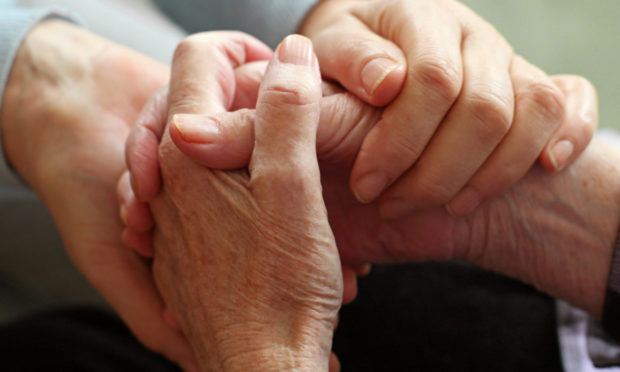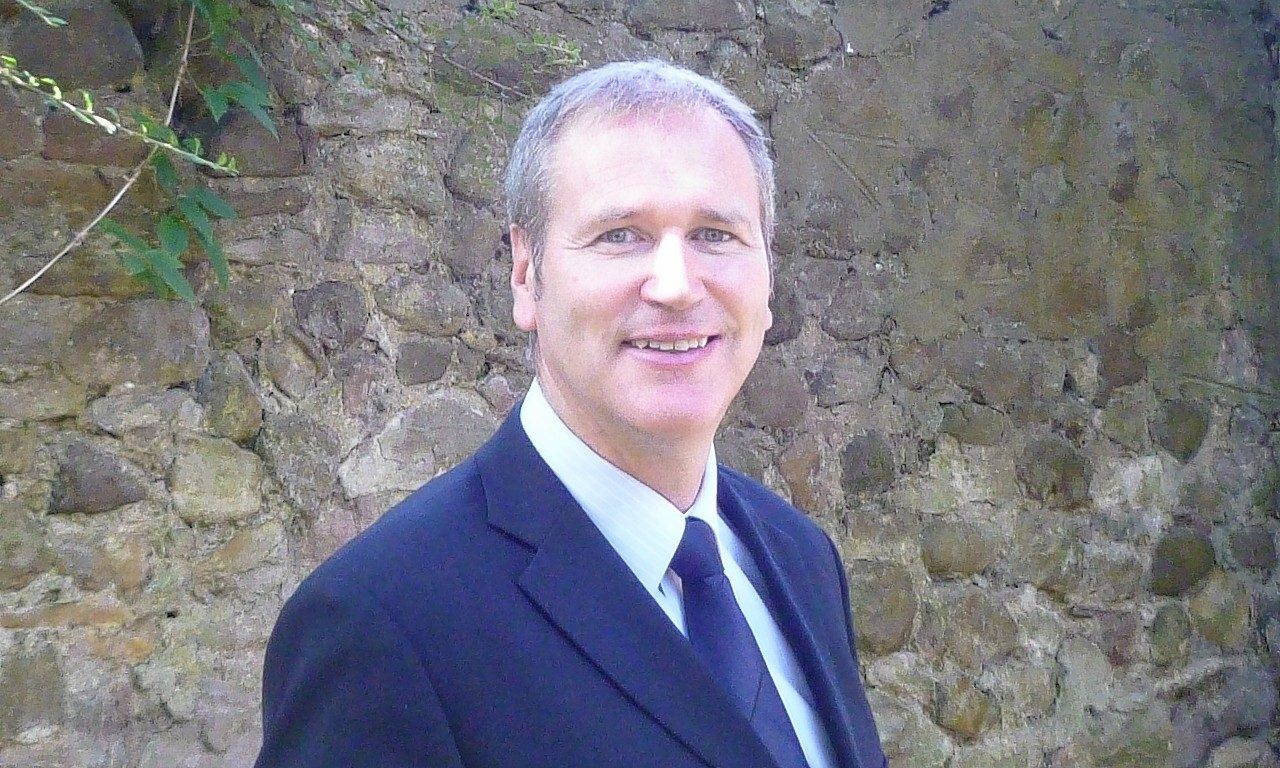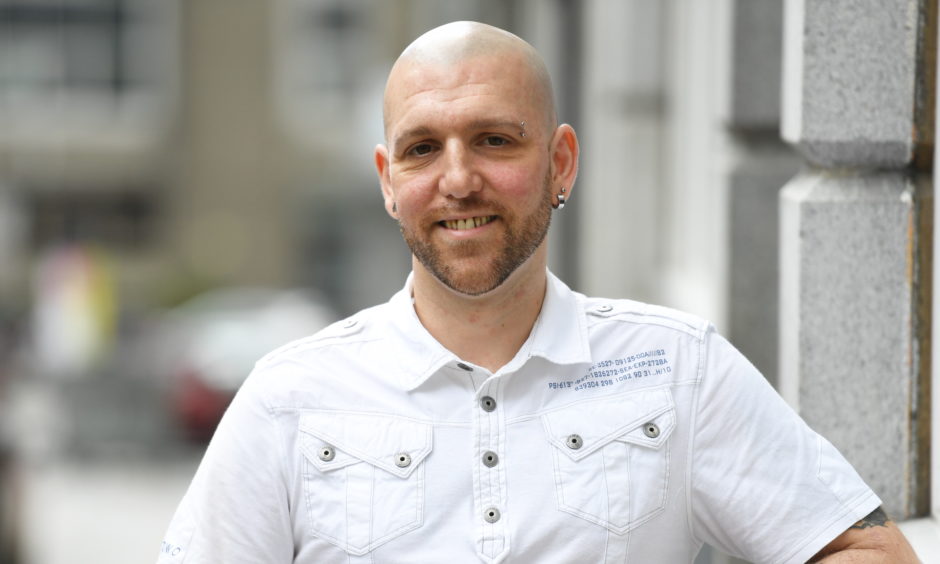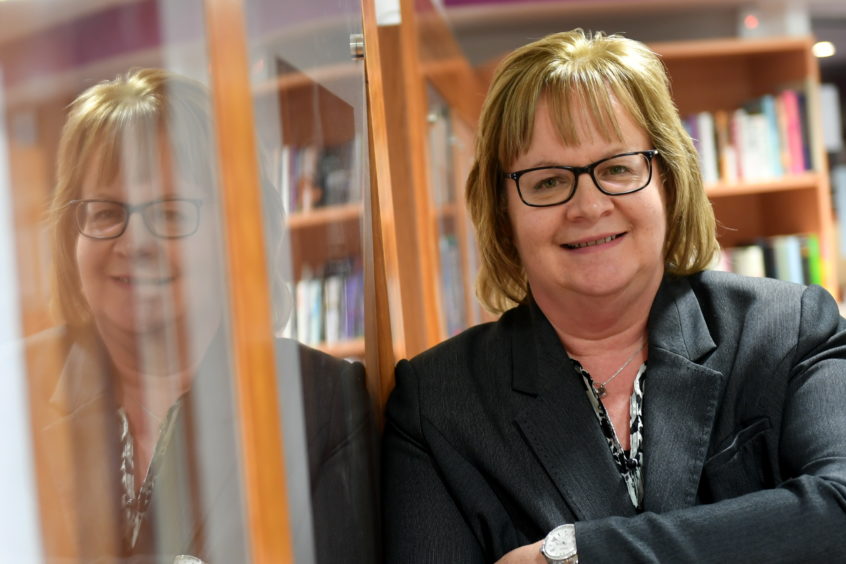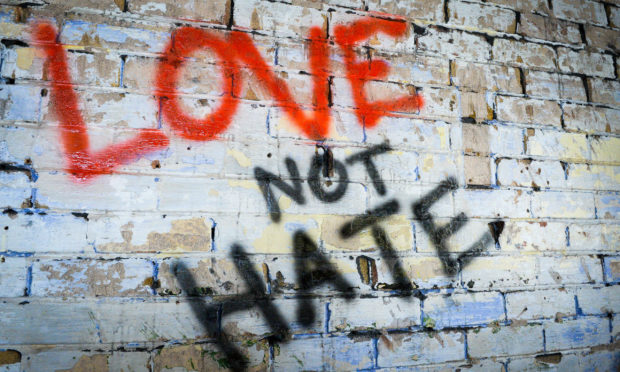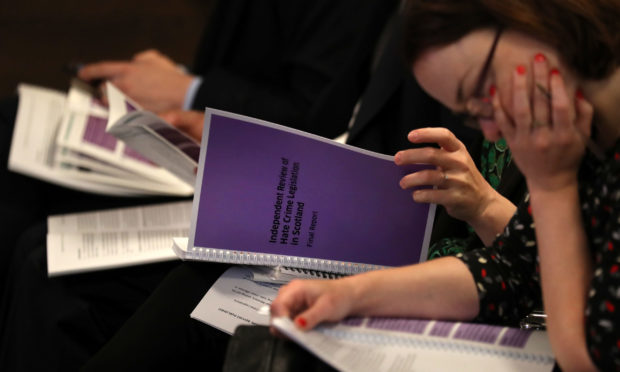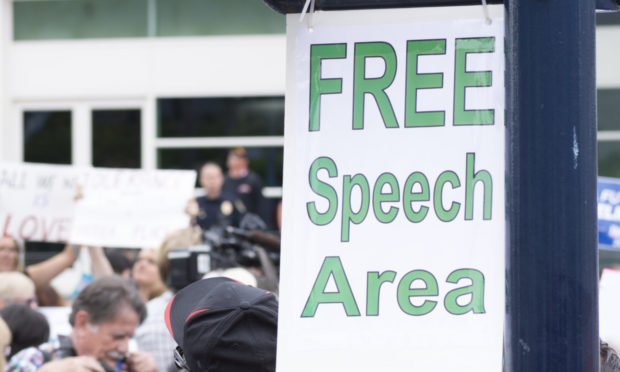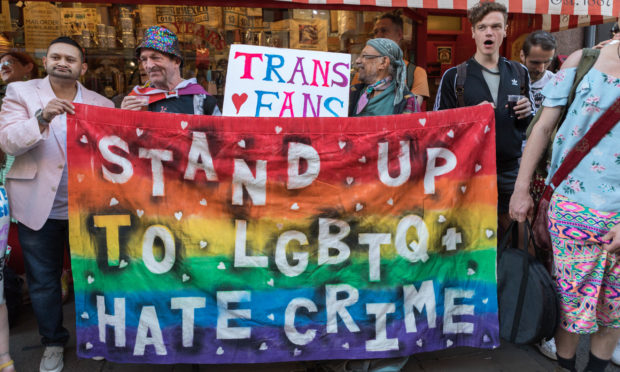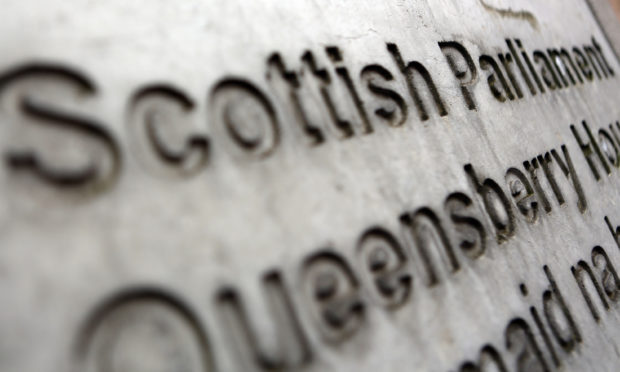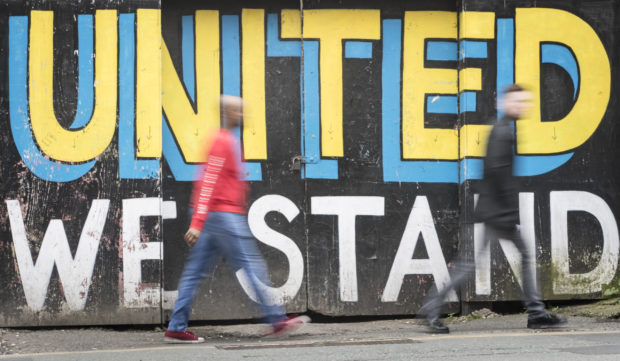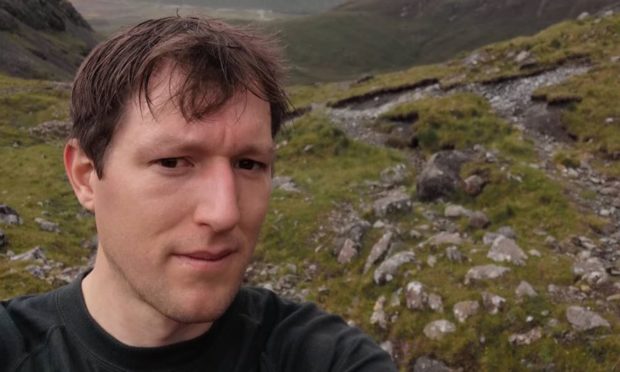New laws will give older people the much-needed “confidence” to report hate crimes committed against them, the chief executive of a leading charity says.
Legislation introduced to the Scottish Parliament in April, seeks to add age to the list of protected groups protected by statute.
Age Scotland was at the forefront of calls to include the characteristic as one of those protected by the Hate Crime Bill, with chief executive Brian Sloan stating offences against older people are “all too common”.
Charities across Scotland, including Stonewall Scotland and Victim Support Scotland, have also thrown their weight behind the added protections on offer for marginalised groups in society.
Mr Sloan said: “With a rapidly ageing Scottish population, it’s really important that we have laws that better protect older people from crime.
“Sadly hate crimes against older people are all too common, and they are often targeted because of their age or perceived vulnerability. This can have a hugely negative impact on their mental health and well-being.
“We have been calling for the new Hate Crime Bill to include a statutory aggravator for crimes committed against people because of their age, so this is welcome news.
“It sends a strong message that age discrimination is never acceptable in our society.”
Mr Sloan added that he hopes the new laws would give older people the “confidence” to report hate crimes to the police and know they will be “taken seriously”.
He said: “It will also give prosecutors an additional tool for securing convictions and hopefully act as a strong deterrent to criminals in the first place.”
It sends a strong message that age discrimination is never acceptable in our society.”
Brian Sloan, chief executive of Age Scotland
The controversial Bill has split opinion in Scotland with critics of the legislation arguing the inclusion of an extended ‘stirring up hatred’ offence will have a “chilling effect” on freedom of speech.
‘Hate crime can have a damaging life-long impact’
However charities including Victim Support Scotland have backed the Bill, arguing it will “modernise, consolidate and extend Scotland’s existing hate crime legislation, ensuring it is fit for a “diverse and tolerant Scotland”.
Kate Wallace, chief executive of the charity, said: “Hate crime can have a damaging life-long impact on the health and wellbeing of the person involved , their family and the community.
“We believe the Bill will make it clear that communicating offensive views to stir up hatred is not acceptable in Scotland and sends a message to victims, perpetrators and wider society that such behaviour won’t be tolerated.
“We also hope the Bill will provide more protection and reassurance to people impacted by hate crime, marginalised communities and anyone who identifies with one or more of the protected characteristics laid out in the legislation.”
We believe the Bill will make it clear that communicating offensive views to stir up hatred is not acceptable in Scotland and sends a message to victims, perpetrators and wider society that such behaviour won’t be tolerated.”
Kate Wallace, chief executive of Victim Support Scotland
Dave Black, chief executive of Grampian Regional Equality Council, which works with people and communities in the north-east to advance equality and tackle discrimination, said it welcomes the move to bring several pieces of separate legislation into one act, reflecting the “varied ways” in which prejudical behaviour is taking place in the 21st century.
The charity boss added that the Bill “finds the balance” between extending and consolidating protections to minority groups, while protecting freedom of expression.
He said: “We also welcome that more groups will now have fuller protection under the law, to live their lives free from abusive or threatening behaviours on the basis of their identity.”
Deejay Bullock, the founder of Aberdeen-based LGBT support charity Four Pillars, has also thrown his support behind the proposed new hate crime laws as he believes it will “protect more people and ensure no one experiences a hate crime based on their gender, age, race, sexual orientation, background or any other reason”.
It comes as official figures released by the Crown Office show that homophobic hate crime has reached its highest level on record in both Aberdeen and Dundee.
He added: “It is not hard to believe everyone should be treated as equal, it’s just a shame extra laws have to be brought in to enable that to happen.”
Stonewall Scotland has welcomed the changes which it said would “modernise hate crime legislation and strengthen the protections of LGBT people against hate crime”.
Megan Snedden, campaigns, policy and research officer at Stonewall said: “The devastating fact is that we know anti-LGBT hate crimes is on the rise in Scotland.
“Just last month, Scotland’s prosecution service reported that sexual orientation aggravated crime had increased by a quarter over the last year.
“While our 2017 research found that almost half of trans people (48 per cent) have been the victim of a hate crime because of who they are.
“This new Bill would plug a gap in the current law by extending stirring up of hatred offences, which currently only apply in relation to racial hatred, to cover other characteristics, including sexual orientation and transgender identity.
“This means behaviour that could stir up hatred against LGBT people could be prosecuted, providing greater consistency in how crimes based on protected characteristics are treated.”
While our 2017 research found that almost half of trans people (48 per cent) have been the victim of a hate crime because of who they are.”
Megan Snedden, Stonewall Scotland
The underreporting of hate crimes remains a “huge issue”, according to the charity, and their own research has shown more than four in five LGBT people in Scotland who experienced a hate crime did not report what happened to them to the police.
“That’s why, alongside this new legislation, we’d urge the Scottish Government to also put forward plans to improve reporting levels and increase public confidence in the way the criminal justice system deals with LGBT hate crimes”, Ms Snedden added.
The Bill will also offer extended protections to disabled people who would be protected under the ‘strirring up hatred’ offence.
Linda Gray, chief executive of Aberdeen-based learning disability charity Inspire, says new legislation which provides the authorities with greater powers to deal with crimes against those in vulnerable groups can only be welcomed.
She said: “Fortunately hate crimes against the people with learning disabilities supported by Inspire are rare, perhaps because the majority of those we support are often accompanied by a staff member when out and about, but also because many are well-known and familiar faces in their local communities.
“However, where there have been incidents of abuse or harassment in the past, there have sometimes been limitations to what actions the authorities are able to take against the perpetrators.
“Any legislation, therefore, that aids the protection of vulnerable groups – such as those adults with learning disabilities that Inspire supports – would, by its nature, be welcomed by the organisation.”
